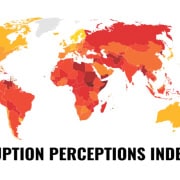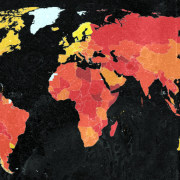|
Getting your Trinity Audio player ready...
|
Image: Freepik image generator
Source: Transparency International
As Transparency International’s official chapter in South Africa, Corruption Watch keeps a keen eye on the activities of our fellow chapters around the world. When those chapters are baselessly attacked for doing their work, it resonates with us because we, too, have experienced this unpleasantness. It’s something anti-corruption practitioners have come to expect.
After the release two weeks ago of the annual Corruption Perceptions Index, the corrupt went on the rampage in several countries, intimidating and attacking for no reason other than that their nefarious activities were under the spotlight.
Transparency International shares more on what’s happening.
When exposed for their misdeeds, the corrupt often resort to a counteroffensive, aiming to deflect attention from themselves and discredit those who are shedding light on their wrongdoings. Just days after the launch of the Corruption Perceptions Index (CPI), Transparency International and several of our national chapters continue to deal with baseless attacks.
This week, we publicly denounced the unjust retaliation our chapter in Brazil has faced in response to its unwavering anti-corruption efforts in the country. Regrettably, several other chapters have experienced groundless attacks following the release of their CPI scores two weeks ago.
Remember the Lava Jato, or Operation Car Wash, case? One of the world’s biggest foreign bribery cases, it uncovered a massive corruption scheme involving the Brazilian state-owned energy company Petrobras, which accepted bribes from construction firms in exchange for inflated contracts.
Earlier this year, Supreme Court minister Dias Toffoli suspended a half billion-dollar fine on Novonor (formerly Odebrecht), a key player in the scandal. He also invalidated evidence from the Odebrecht leniency agreement and stopped a record corruption fine on J&F Investments (owner of the world’s largest meat packing company JBS). Barely a week after the CPI was launched, Toffoli ordered an investigation against Transparency International based on unfounded allegations.
Brazil’s CPI score fell 7 points between 2012 and 2023 and our analysis noted other setbacks, including in the independence of the justice system.
In Honduras, the government intimidated and attacked Transparency International and our chapter, the Association for a More Just Society (ASJ), following the publication of the CPI, trying to discredit their work.
We have spoken up against the growing capture of Congress by the executive branch, including allowing the appointment of the general prosecutor by the legislative branch without transparency, which critics have described as illegal.
Honduras has also significantly declined in its score, dropping 8 points since 2015, and scoring 23 out of 100 for past three years.
In Georgia, after the CPI release, the government smeared our national chapter for the second year in a row. Georgia has a score of 53 points, its lowest since 2015, partly due to a deepening state capture.
This is an ongoing global trend: governments target those who expose and call out corruption – whether they’re civil society organisations (CSOs), journalists, activists, or whistleblowers.
However, these attacks go beyond and run deeper than the CPI scores. Governments worldwide continue to use all sorts of tactics to shrink civic space, like spreading misinformation, starting retaliatory investigations and even enacting laws.
This week, the European Commission opened an infringement procedure against Hungary over a new law aimed at stifling public participation by establishing a new body with sweeping powers to investigate anyone who receives foreign funding and tries to influence public debate. In Republika Srpska, one of Bosnia and Herzegovina’s two entities, a law restricting the work of CSOs who receive foreign funding could be adopted as early as March. Slovakia’s populist Prime Minister Robert Fico publicly announced similar plans.
However, in December 2023, the European Commission itself proposed the Defence of Democracy package, which included a demand for CSOs to disclose foreign funding. This risks legitimising foreign agents’ laws that the EU criticised in Hungary and other countries, while failing to meet the EU objective of countering malign influence in EU democracies.
These initiatives could all expose, stigmatise, and ultimately stifle civil society voices, as they already have in other countries with similar legislations, including Russia and Nicaragua.
The link between civil liberties and corruption is a two-way street. When corruption spreads, it chips away the remaining civic space and those who speak up become targets. This cycle of abuse thrives because citizens can’t hold the powerful accountable.
Yet despite challenges, hope persists: the resilience of CSOs, independent media and activists proves that civil society will not be silenced. Transparency International, with its chapters across the globe, will continue to speak truth to power and call for transparency, justice, and accountability.








